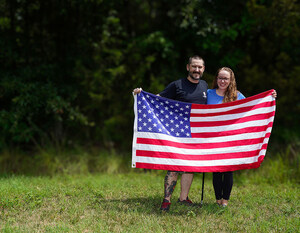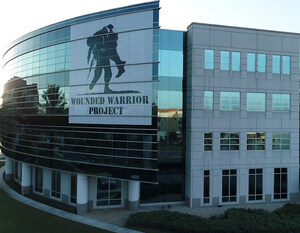Invisible Wounds Outnumber Physical Injuries for Veterans Registered with the Nonprofit
JACKSONVILLE, Fla., May 2, 2023 /PRNewswire/ -- War wounds are not always physical. Invisible wounds are among the most common for veterans who served after 9/11, according to the latest data from Wounded Warrior Project® (WWP). Every year, the nonprofit asks the warriors it serves what health issues they live with from military service. The latest numbers show three of the four most common answers were related to mental health.
Learn about WWP's work to #CombatStigma for veteran mental health.
U.S. Army veteran Bryan Wagner: "Many of my buddies think they aren't 'injured enough' to accept help. It worries me. I'm tired of losing friends to suicide, especially when organizations like Wounded Warrior Project offer so much help for mental recovery."
Strength in Numbers
Misconceptions about mental health leave some veterans feeling alone in their struggle, but they are not. According to WWP's Annual Warrior Survey, which represents more than 165,000 post-9/11 wounded veterans registered with the nonprofit at the time of the survey:
- 76% of WWP warriors live with post-traumatic stress disorder (PTSD).
- 76% of WWP warriors live with anxiety.
- 74% of WWP warriors live with depression, which was shown to be the most significant contributor to low quality of life overall.
Nearly half of all WWP warriors live with moderate or severe symptoms of two or more mental health issues. In the past year, 2 in 3 WWP warriors got professional help with their stress, emotions, or mental health.
Combatting Stigma and Misconceptions
This year marked two decades since the invasion of Iraq. Much has changed since then for veterans who cope with mental health concerns. Some notable changes include:
- Mental health is becoming less taboo. Public education campaigns like #combatstigma foster open conversation about veteran mental health, which helps to normalize seeking care.
- Clinical care can deliver effective treatment in a shorter time. On average, a veteran with severe PTSD who attends the Warrior Care Network® two-week intensive program sees significant improvement in symptoms.
- Adventure-based learning provides new skills to cope with symptoms. Horseback riding, virtual reality, zip lining, dolphin kisses, and motorcycle trips are some of the therapeutic experiences veterans and their families encounter throughout WWP programs.
No veteran should feel alone on their mental health journey. Each year, WWP hosts over 6,400 connection events and 1,200 veteran-only support groups to ensure members can find connection and encouragement among others facing similar mental health journeys.
Supporting the Whole Family
A veteran's spouse, children, or caregivers can also find resources for their mental health needs. Those registered with WWP can access many of the same support programs available to veterans.
Dr. Sonal Patel, director of WWP Talk, a program offering weekly emotional support calls for WWP warriors or family support members: "Military families whose loved ones served after 2001 faced a variety of stresses, including the constant worry about the safety of their loved one. As a society, we must ensure mental health services are available and accessible to all those veterans and their families."
All WWP programs are free to registered warriors and their family members. The organization will mark 20 years of serving post-9/11 injured veterans and families this year. Learn more about WWP's ongoing work supporting mental health.
About Wounded Warrior Project
Since 2003, Wounded Warrior Project® (WWP) has been meeting the growing needs of warriors, their families, and caregivers — helping them achieve their highest ambition. Learn more.
SOURCE Wounded Warrior Project

WANT YOUR COMPANY'S NEWS FEATURED ON PRNEWSWIRE.COM?
Newsrooms &
Influencers
Digital Media
Outlets
Journalists
Opted In






Share this article